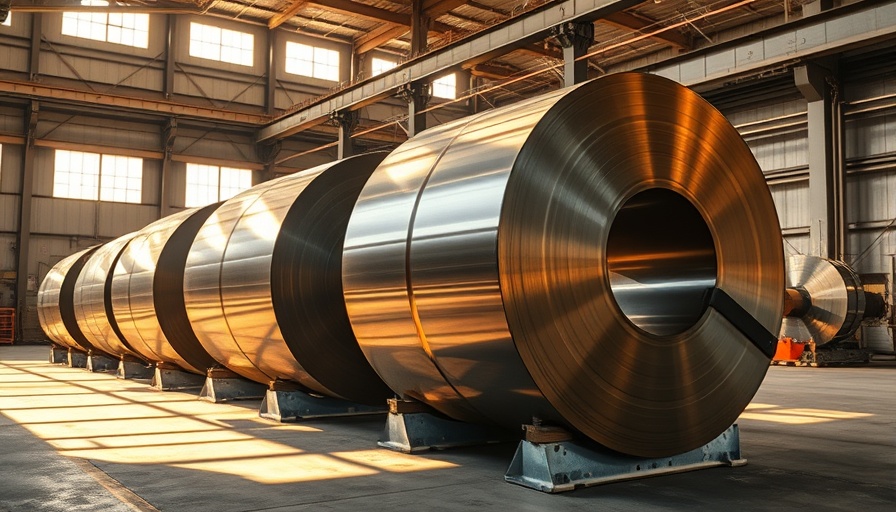
The Battle for Britain's Steel Industry Amid EU Tariffs
A significant shift in trade policy was recently highlighted as the EU announced a 50% import tariff on British steel, leaving UK steel producers and manufacturers grappling with the consequences. Simon Boyd, managing director of REIDsteel, has raised an alarm over these new restrictions, arguing that they threaten the very fabric of the UK’s manufacturing sector. Boyd emphasizes that the EU’s decision to halve the UK’s tariff-free quotas for structural steel exports is a blatant imbalance, tipping the scale heavily in favor of EU producers.
A Staggering Disparity in Trade Advantages
Under the new tariffs, British steel exports stand to lose much of their competitive edge, as the UK market is forced to accommodate 680,000 tonnes of tariff-free EU steel, while the UK is permitted only 108,000 tonnes into the EU market. This stark contrast has left industry figures like Boyd arguing for a robust governmental response in the form of reciprocal tariffs to protect British interests. The Guardian also notes that without decisive action, the situation presents an 'existential threat' to the thriving industry previously bolstered by a stable trade relationship within the EU.
The Impact on Jobs and the Economy
The steel sector is not just a singular industry; it directly employs around 36,800 workers and supports an additional 46,000 jobs in its supply chain. The economic implications are staggering — contributing over £3.1 billion to the UK's balance of trade. If the government fails to retaliate against these tariffs, the negative ripple effects could lead to accelerated declines in heavy industry, going against the UK’s goal of revitalizing domestic manufacturing.
Navigating Future Challenges
The stakes have never been higher for the UK steel industry, especially considering the backdrop of rising global steel prices driven by external economic pressures like China's manufacturing capabilities. With the EU's looming tariff changes, Boyd insists on immediate governmental actions that could include negotiating exemptions or enforcing equivalent counter-tariffs. The future of Britain's steel industry relies heavily on these trade dynamics.
Amid these discussions, industry leaders are advocating for swift action and emphasize the potential for domestic economic resilience through strategic investments and policies that prioritize British steel in government contracts.
Concluding Thoughts
The call for the UK government to assertively respond to EU tariffs is not just about steel; it encapsulates a larger narrative about sovereignty and economic independence in a post-Brexit landscape. Financial institutions, service providers, and stakeholders aligned with the manufacturing realm must keep a vigilant eye on these developments, as they have profound implications for the broader economy. Would a stronger push from Britain yield a more favorable trading environment, or could it lead to escalated tensions with the EU? Understanding these dynamics is critical for those invested in the financial health of the UK manufacturing sector.
 Add Row
Add Row  Add
Add 




Write A Comment